
Archived Posts
- February 2024 (2)
- December 2023 (2)
- November 2023 (1)
- October 2023 (1)
- July 2023 (2)
- April 2023 (2)
- August 2022 (2)
- July 2022 (1)
- June 2022 (1)
- May 2022 (1)
- March 2022 (2)
- December 2021 (2)
- November 2021 (2)
- October 2021 (1)
- September 2021 (1)
- August 2021 (2)
- May 2021 (1)
- December 2020 (1)
- November 2020 (1)
- August 2020 (1)
- July 2020 (3)
- June 2020 (1)
- April 2020 (3)
- March 2020 (3)
- February 2020 (2)
- November 2019 (1)
- September 2019 (1)
- April 2019 (1)
- February 2019 (1)
- December 2018 (1)
- October 2018 (1)
- August 2018 (2)
- April 2018 (1)
- March 2018 (2)
- February 2018 (4)
- December 2017 (1)
- April 2017 (1)
- February 2017 (2)
- December 2016 (1)
- October 2016 (2)
- September 2016 (1)
- August 2016 (1)
- July 2016 (1)
- June 2016 (2)
- April 2016 (3)
- March 2016 (6)
- February 2016 (1)
- January 2016 (2)
- December 2015 (3)
- October 2015 (2)
- September 2015 (14)
- June 2015 (5)
- May 2015 (3)
- April 2015 (6)
- March 2015 (4)
- February 2015 (6)
- January 2015 (2)
- December 2014 (6)
- November 2014 (3)
- October 2014 (11)
- September 2014 (5)
- August 2014 (2)
- July 2014 (6)
- June 2014 (3)
- May 2014 (4)
- April 2014 (4)
- March 2014 (7)
- February 2014 (3)
- January 2014 (4)
- December 2013 (6)
- November 2013 (2)
- October 2013 (9)
- September 2013 (5)
- August 2013 (5)
- July 2013 (4)
- June 2013 (6)
- May 2013 (2)
- April 2013 (3)
- March 2013 (3)
- February 2013 (5)
- January 2013 (5)
- December 2012 (6)
- September 2012 (1)
- August 2012 (1)
- July 2012 (2)
- June 2012 (2)
- May 2012 (5)
- April 2012 (3)
- March 2012 (6)
- February 2012 (4)
- January 2012 (1)
- November 2011 (1)
- September 2011 (2)
- July 2011 (2)
- June 2011 (2)
- May 2011 (2)
Call for Side Events – Africa Fertilizer and Soil Health Summit (AFSH)
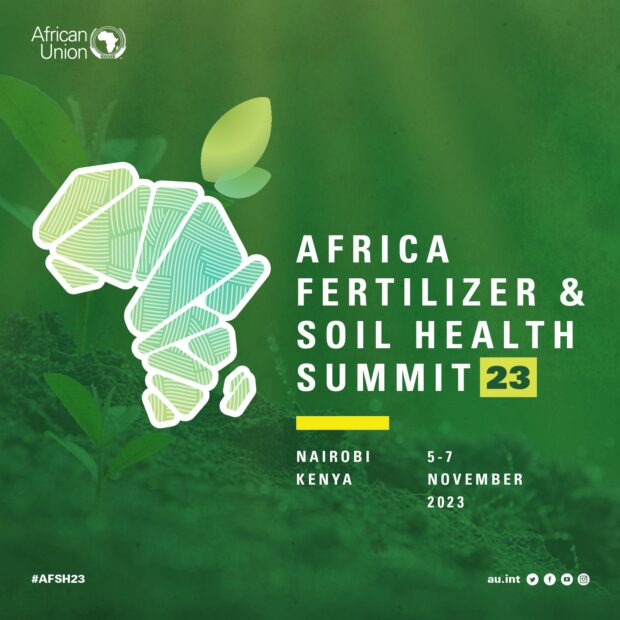 The African Union, in collaboration with the Republic of Kenya, is organizing the Africa Fertilizer and Soil Health Summit (5-7 November, 2023).
The African Union, in collaboration with the Republic of Kenya, is organizing the Africa Fertilizer and Soil Health Summit (5-7 November, 2023).
As a part of the Summit, opportunities are created for 15 side events over two days on topical technical, policy, and finance subjects related to soil health and fertilizer in Africa. A side event at the AFSH Summit is an opportunity to showcase research/development activities and strengthen partnerships/linkages with the Summit audience.
The subject of the side events should align with one or two of the following sub-themes of the Summit:
- Advances in monitoring soil health, land degradation, and agronomic performance and multi-stakeholder action for scaling soil health globally through evidence-based public and private investment.
- Soil information systems in Africa.
- Process for developing and implementing Country plans and Partnership modalities for implementation of AFSH-AP.
- Importance and benefits of integrated landscape soil and water management to optimize fertilizer use and soil health across agricultural land uses.
- The organic matter component of the ISFM equation: Challenges and realistic opportunities.
- Policy framework around fertilizer and soil health; incentive schemes for building soil health.
- Financing Africa’s Fertilizer Value Chains.
Deadline for submission is 20 October 2023.
Learn more about the application process here.
2024 Nuffield International Scholarship Applications NOW OPEN!
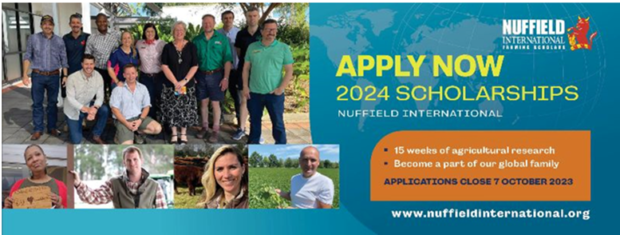
Nuffield International has officially opened its applications for the prestigious 2024 scholarships. If you are between the ages of 25 and 45 and involved in the agriculture industry, this is an opportunity you won’t want to miss!
The Nuffield International scholarships have a remarkable reputation for empowering individuals in the agricultural sector to grow their skills, expand their knowledge, and bolster their capacities. This year, they are offering over 12 scholarships to candidates from various countries, including Argentina, Chile, Germany, Japan, Kenya, Poland, the USA, and Zimbabwe.
Jodie Redcliffe, the CEO of Nuffield International, enthusiastically encourages all eligible individuals to apply, emphasizing that this scholarship provides a unique chance to make a significant impact in the world of agriculture.
“Nuffield International aims to inspire and develop individuals who will be the driving force shaping the future of the agricultural industry and their local and global communities,” says Jodie.
The scholarship program is generously supported by global agribusiness partners, and the Chris Reichstein Philanthropy Fund, whose philanthropic investment from 2014 Australian Scholar Chris Reichstein has made it possible to extend this opportunity to individuals in developing countries.
Nuffield International is looking for applicants who meet the following criteria:
- Engaged in agriculture as either a primary producer or a professional working in the industry.
- Aged between 25 and 45 years old (outstanding candidates outside this range will also be considered).
- Eager to enhance their capacity and expertise through travel and exploration.
- Residing in one of the eligible countries: Argentina, Chile, Germany, Japan, Kenya, Poland, the USA, or Zimbabwe.
If you know someone who fits these criteria, don’t hesitate to share this fantastic opportunity with them. To apply, interested candidates can visit their website here. All applications must be submitted before the deadline on 7 October.
Learn more about the scholarship opportunity here: https://nuffieldinternational.org/scholarships
Celebrating the International Year of Millets: Nurturing Sustainable Food Systems
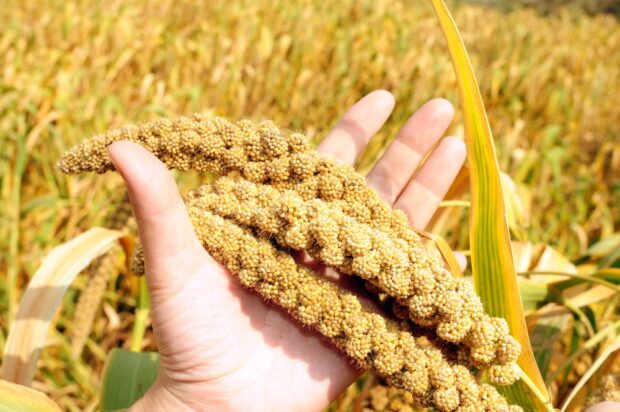
The 2023 International Year of Millets is a global initiative by the Food and Agriculture Organization of the United Nations aimed to raise awareness about the nutritional and environmental benefits of incorporating millets into our daily lives.
What are Millets?
Millets are a group of small-seeded grasses that are highly resilient to drought and require minimal water and inputs to grow, making them an ideal crop in arid and semi-arid regions. They are a staple crop in many regions, particularly in Asia and Africa, and are known for their resilience and adaptability to various climatic conditions. By consuming them, we can reduce the water footprint of our diets and mitigate the impact of climate change.
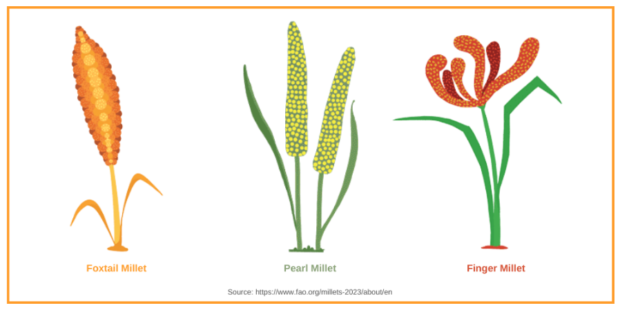
Millets come in a range of varieties, including pearl millet, finger millet, foxtail millet, and sorghum, among others. These grains are highly nutritious, gluten-free, and rich in fiber, minerals, and antioxidants.
The #IYM2023 Global Chefs Challenge!
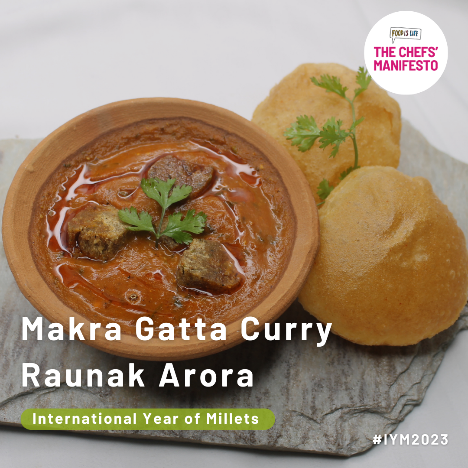 This Year of Millets, the Chefs Manifesto is inviting participants to the #IYM2023 Global Chefs Challenge. The challenge emphasizes the versatility and culinary potential of millets. Chefs from around the world come together to showcase their creativity and expertise by incorporating millets into their signature dishes.
This Year of Millets, the Chefs Manifesto is inviting participants to the #IYM2023 Global Chefs Challenge. The challenge emphasizes the versatility and culinary potential of millets. Chefs from around the world come together to showcase their creativity and expertise by incorporating millets into their signature dishes.
You can join the global community by sharing videos of your favorite millet recipes on Instagram and you might even get the chance to be featured in the prestigious IYM Global Recipe Book!
Get inspired by the Magnificent Millets Recipe Collection.
How Can you Participate?
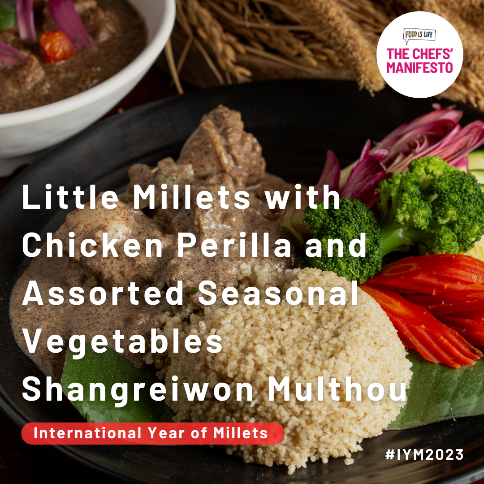 Engage your families and communities in conversations about the power of millet to promote a healthy population and planet.
Engage your families and communities in conversations about the power of millet to promote a healthy population and planet.- Showcase the versatility of millet in your menus, whether it’s in restaurants, hospitals, or schools, and demonstrate how easily it can be included.
- Support smallholder farmers and sustainable agriculture by buying millet directly from them, especially from women and youth. By doing so, you can make a positive impact on rural livelihoods and combat the challenges posed by a changing climate.
- Go a step further and forge partnerships with millet farmers, committing to purchasing their future harvests to minimize their investment risks.
Overall, the Year of Millets, in conjunction with the #IYM2023 Global Chefs Challenge, offers a platform to raise awareness, celebrate culinary diversity, promote healthy eating habits, and support sustainable food systems. By recognizing the immense potential of millets, we can contribute to a more resilient and inclusive future for global cuisine and agriculture.
Status of Women in Agrifood Systems
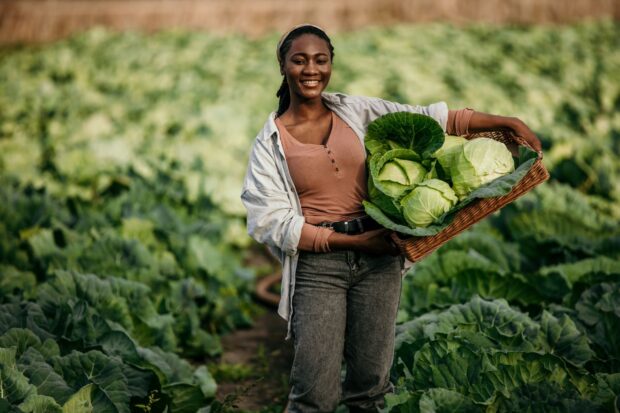
Women empowerment is key to closing the gender gap.
“Closing the gender gap could see a one-off global GDP increase of nearly 1 trillion US dollars – which means 1% of global GDP – and the number of food insecure people could be reduced by 45 million.’’
FAO Director General QU Dongyu
If we are serious about food systems transformation and realizing food and nutrition security, then we really need to pay attention to what data is saying. FAO Director General QU Dongyu launched the Status of Women in Agrifood Systems report. The findings continue to give the same message; food security, food systems transformation, social and economic progress will not be realized if women are left behind!
In numbers
Progress in closing the gender gap remains slow and, worse, the past few years have brought more significant blows to the women in the agrifood sector. While agrifood systems are a more important source of livelihood for women than for men in many countries, the report indicates that:
- The gender gap in land productivity between female- and male-managed farms of the same size is 24%.
- Women engaged in wage employment in agriculture earn 82 cents for every dollar that men earn.
- Between 2017 and 2021, the gender gap in women’s access to mobile internet in low- and middle-income countries narrowed from 25% to 16%.
- While 75% of policy documents relating to agriculture and rural development from 68 countries recognize women’s roles and/or women’s challenges in agriculture and rural development, only 19% included policy goals related to gender.
- The gap in food insecurity between men and women widened from 1.7 percentage points in 2019 to 4.3 percentage points in 2021.
- Globally, 22% of women lost their jobs in the off-farm segment of agrifood systems in the first year of the COVID-19 pandemic, compared with only 2% of men.
Women empowerment is key to food security
The report underscores the need to increase women’s empowerment which is essential for women’s well-being and has a positive impact on agricultural production, food security, diets and child nutrition. Moving forward, there are great examples of what is working to close the gender gap. But we need to accelerate action so that these are scaled. The report notes that more work needs to be done to:
- Develop gender-transformative approaches which show promise in changing social norms, are cost-effective and have high returns.
- Strengthen interventions that address care and unpaid domestic work burdens, education and training, access to technology, resources, and childcare.
- Implement reforms to close gaps in landownership and secure tenure.
- Design extension services and resources such as technologies with women’s needs in mind. Digital tools and ICT have potential to close multiple gaps.
- Enhance group-based approaches to increase women’s empowerment and resilience to shocks and stressors such as the COVID-19 pandemic and climate change.
- Invest in social protection programmes which increase women’s employment and enhance their resilience.
Private sector taking action forward
I am glad to report that these pathways echo what has been the private sector position on gender. Most of these are reflected in the draft CFS Voluntary Guidelines on Gender Equality and Women’s and Girls’ Empowerment. The private sector has been part of the process of developing these guidelines and we look forward to the successful conclusion of this process and adoption at CFS 51. There is no doubt the outcome of this process will be crucial to scaling up efforts by various actors, including the private sector. The private sector will continue to provide its support and work on the ground to advance gender equality.
Private sector is also keen on partnerships and is joining FAO in its commitment to further increase its work on gender equality and women’s empowerment. We are just concluding a FAO-IAFN jointly-led Accelerator Mentorship programme for women-led SMEs in Africa. The overwhelming response to the program shows how business mentorship can contribute to socio-economic empowerment of women. We received more than 500 applications for 50 slots! The need is immense, and we are seeking more partners to ensure as many women as they need this help can get it.
The Future is Bright for the Agriculture and Food Sector

The Nuffield Contemporary Scholars Conference (CSC) in Vancouver in 2023 showed the future is looking bright for the agriculture and food sector. This year’s crop of scholars came from all over the world and were working on projects as diverse as wildlife conservation, conflict resolution, media engagement, reducing greenhouse gases, and improving biodiversity.
As I spoke with these talented individuals, one thing that struck me was their humility. Despite being international scholarship winners, they were still eager to learn and grow. It was a unique perspective on rural life that I think is often overlooked. People from rural communities may assume that their opinions are not important in the wider world, but in fact, they bring a technical understanding of how to do things right from the field.
I encouraged these young scholars to have confidence in their expertise and to speak up about the issues that matter to them. Their voices are incredibly important, and we need their perspectives to shape the future of agriculture and food. The Nuffield program provides an excellent opportunity for emerging leaders in agriculture to tour the world, see different perspectives, and prepare a paper on their experiences.
The Nuffield family is truly a family. The program fosters a sense of community and support that extends far beyond the scholarship period. The scholars I spoke with were enthusiastic about staying connected with their contemporaries and mentors and continuing to collaborate on future projects. They are eager to tackle the challenges facing agriculture and food and to do so in a way that is sustainable, equitable, and just.
The conference was not just an opportunity to meet the next generation of agricultural leaders but also to draw inspiration from them. Their passion, commitment, and humility were inspiring, and I am excited to see what the future holds for them and the agriculture and food sector as a whole. It is an annual event that brings together a group of emerging agricultural leaders from around the world to exchange ideas, discuss challenges facing the agriculture industry, and develop strategies for the future.
The conference is hosted by Nuffield International, a non-profit organization that aims to promote agricultural development and leadership through education and research. Each year, Nuffield selects a group of scholars from different countries to participate in the conference.
Consider applying for this opportunity, supporting a scholar, or meeting them as they travel with world.